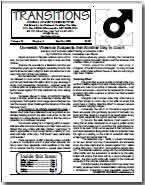The Federal Labor government appears bent on making it easier for mothers in Family Court proceedings to make false accusations about fathers being violent and abusing their children.
Such accusations are a routine part of custody battles. The Howard government made some effort to limit them; these sanctions are to be lifted in an amending bill to the Family Law Act now before the parliament.
The declared aim of the amendments is to better protect children from abuse and violence. The bill reaffirms that the best interests of the child must be the paramount consideration in the arrangements that follow separation of their parents. That always sounds reassuring. It is the mantra under which the Family Court operates. But when one principle, however worthy, is made pre-eminent, to be pursued whatever the consequences, terrible harm can be done.
Consider. A mother makes a false accusation of abuse against a father; she may believe it to be true or it may be concocted. Either way the father is immediately made into a pariah. After the case is examined, the court may decide that the father cannot see his children, not because it has been proved beyond reasonable doubt that he has abused his children, not because on the balance of probabilities he has abused his children, but because in the mind of a judge he presents an unacceptable risk to his children. Well, you might think, with children you can’t be too careful. But consider what this carefulness is doing. Innocent fathers are branded as child abusers by an instrument of the state, a body going under the name of a court of law, which then rules that they are not to see their children again. Just how many fathers will you torture in this way to protect one child?
The Family Court was pushed into operating on ‘unacceptable risk’ by the High Court in the case M v M. The consequence is that the court seeks absolute security for the children in its purview. Meanwhile in the administration of child welfare by the states, great risks are run because the policy here is to keep children in the care of parents if at all possible.
I think too many risks are taken. Children are reported as being in danger, social workers examine the case, they give advice and warnings to the parents, and leave the children in their care. All too frequently the parents do not improve; they remain alcoholics or drug addicts and their children die from abuse or neglect. In New South Wales in the years 2008-2009, 57 children died from abuse or neglect. Of these, 30 were known to be at risk by Community Services, which had left them with their parents.
Everyone wants the child welfare system to be better. But no one says that no risks should be taken. If the Family Law practice were followed in child protection, children would be removed from their parents on the first report of abuse. One reason why children are not more readily removed is that the cost of maintaining them then falls on the government through payments to foster parents or the support of institutions which care for them. These considerations do not operate in Family Law cases. If the court rules that a father can no longer see his children, he is still required by the Child Support Agency to make payments to support them.
The Family Court should not deny a parent access to a child unless they can be shown to be a danger to the child. The ‘unacceptable risk’ policy should be over-ruled, freeing the Court from perpetrating gross injustices. Fathers are citizens who should not be deprived of their children without a case being proven against them. But even on the test of the best interests of the child, consider what damage the court is doing to the children of innocent fathers: they are deprived of a father and later they will find out that this was because of a falsehood on the part of their mother.
The amendments made to the Family Law Act by the Howard government did not go as far as I am proposing here. They aimed to reduce the evil by providing that a parent knowingly making false accusations would have to bear the costs of the other party, and a parent who made false accusations could be declared to be an ‘unfriendly parent’ in the matter of determining custody, where the aim is to keep both parents in a relationship with their children. Both these provisions are now to be removed because it is claimed they inhibit women from revealing violence.
The government’s rationale for the change about costs reads: ‘Vulnerable parents may choose to not raise legitimate safety concerns for themselves and their children due to a fear they will be subject to a costs order if they cannot substantiate the claims.’
So in this court, allegations without evidence are to be encouraged!
Under the proposed amendments, the court is also to abandon proceeding by evidence in determining whether family violence has occurred between the mother and father. If one party declares that the behaviour of the other caused them to be fearful, then violence has occurred.
The government’s bill has been examined by a committee of the Senate. Its Coalition members have recommended that the changes discussed here not be made. But the Greens are happy with them, so unless the government has a change of heart they will pass into law.
Whatever the intent of its promoters, one sure effect of the bill is that more false allegations will be made with greater chance of success. More children will be needlessly deprived of contact with their fathers.
John Hirst is a historian, whose most recent book is Looking for Australia.


